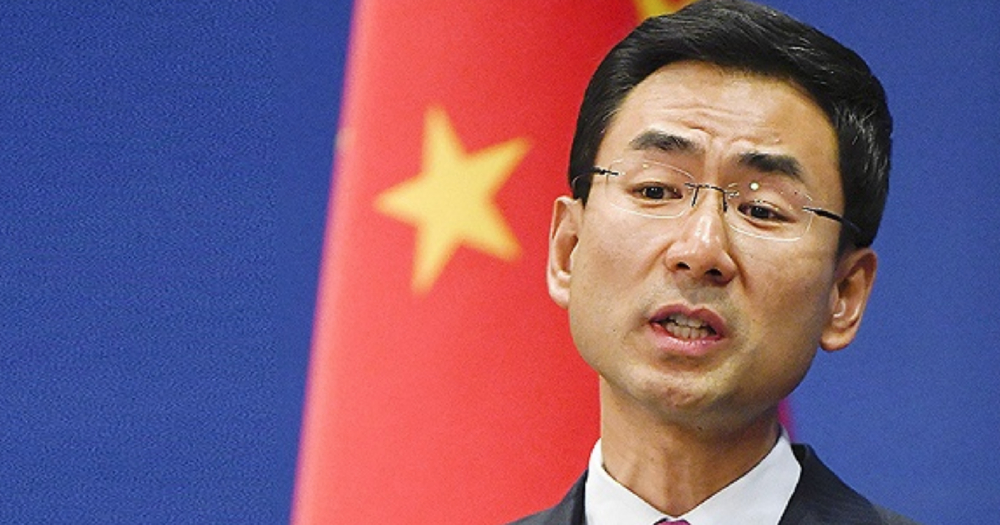The United States Department of State has designated five Chinese media outlets as "foreign missions", which means they will be recognised as arms of the Chinese government.
Which five media outlets?
The five Chinese state media outlets are:
- Xinhua News Agency
- China Global Television Network (CGTN) under China Central Television (CCTV)
- China Radio International
- China Daily Distribution Corporation
- Hai Tian Development USA (People's Daily distributor in the U.S.)
These media outlets often hire native English speakers to, in the words of Chinese President Xi Jinping, "tell China's story well".
Chinese cultural symbols, such as pandas and stories that tell of China's amazing development, are pet topics that are often revisited, while issues that Beijing find sensitive are avoided.
"Controlled by Beijing"
A spokesperson from the State Department further said the designation was made based on the "very indisputable fact" that the five media outlets are "subject to the control of the Chinese government".
He also claimed that the Chinese Communist Party's (CCP) control over the country's media tightened after Xi took office, and that such control was over areas such as content and editorial direction.
Entities classed as foreign missions under the U.S. Foreign Mission Act are substantially owned or effectively controlled by a foreign government.
What does "foreign missions" mean?
The state department further explained that although the media outlets are now designated as "foreign missions", it does not mean they are consulates or have diplomatic privileges or immunity.
Instead, the move means additional requirements are now imposed on the media outlets.
They are now required to notify the American government of their current employees within the U.S., as well as basic information about the individuals.
Also, they have to notify the U.S. of any property they own or lease in the country, and to also seek approval to buy any property.
Move is "long overdue"
Secretary of State Mike Pompeo told Axios further that the move was "long overdue", and that by taking this action, the U.S. is simply recognising the fact that the media outlets are "controlled by the CCP".
He also said the U.S. is now "determined to treat China as it is, not as what [they] want it to be", adding that it is "only fitting" that the media organisations are treated as foreign missions since they work for the CCP.
Not the first time
This is not the first time the U.S. has designated foreign media outlets as government extensions.
According to The Washington Post, the Vietnam News Agency received the same designation five years ago.
Russian media outlets such as Tass and Pravda were labelled the same as well during the Cold War.
Principle of reciprocity
Referring to the media outlets as "propaganda organs", Pompeo also said that while they operate "freely within the open American system", journalists in China face "massive restrictions".
"We hope the CCP will reconsider its treatment of journalists inside China," he said.
The same sentiment is voiced by a state department official, who told The Guardian that while Chinese journalists in the U.S. could "continue to enjoy [their] free and open system", western journalists do not necessarily have the same treatment in China.
The U.S. under Trump has constantly stressed the principle of reciprocity in its approach to its relations with China.
The principle is supposed to ensure equitable treatment for U.S. personnel abroad.
China says move is "unreasonable and unacceptable"
China's foreign ministry has since responded to the move, saying on Wednesday, Feb. 19, that the decision was "unreasonable and unacceptable", and that China strongly urges the U.S. to immediately correct its mistake.
The Chinese foreign ministry's spokesperson Geng Shuang further defended the Chinese media as "objective, impartial, truthful and accurate", adding that it has made tremendous contributions to improving cross-cultural understandings between China and the U.S.
However, he accused the U.S. of being hypocritical for championing freedom of the press, and yet obstructing the Chinese media's normal operations within the U.S.
He further urged the U.S. to take down its "ideological lens", stop thinking in terms of a zero-sum game, and to stop taking any action that ruins the mutual trust and cooperation between both countries.
Finally, he said China will retain the right to make the next move in response to the incident.
Revoked press credentials of WSJ reporters
China has also since revoked the press credentials of three journalists working for the Wall Street Journal, after the newspaper refused to apologise for a headline that called China the "real sick man of Asia", Reuters reported.
China has also previously expelled a Singaporean WSJ reporter from China, after a report on the alleged illegal activities of Xi's cousin in Australia was published.
Top image via Visual China Group
If you like what you read, follow us on Facebook, Instagram, Twitter and Telegram to get the latest updates.
